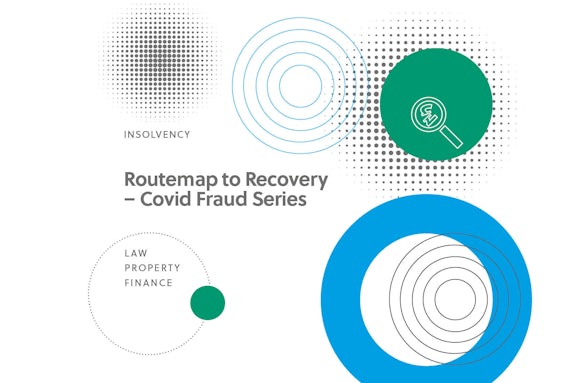In this first of our series of fraud related insights for Insolvency Practitioners, we outline the current position on what IPs need to be on the lookout for and what we think might happen next.
Government support offered from Spring 2020 to businesses affected by Coronavirus lockdowns was unprecedented, not only in the sums made available but also in the ease of obtaining grants and loans. Trying to ensure easy access to support for businesses was no doubt significant in preventing a wave of business failures. Nevertheless, it also resulted in a significant amount of fraudulent claims. So what measures can the Government take now to address the misuse of the Covid support schemes, and how will that impact on IPs?
HMRC – furlough fraud and similar support schemes
The Coronavirus Job Retention Scheme (CJRS) colloquially known as “furlough” cost around £70bn and is estimated to have protected nearly 12 million jobs. It operated as a grant from the Government to eligible employers rather than a loan. The Finance Act 2020 provides for HMRC to recover fraudulently obtained CJRS as a tax charge on the business. Individuals and partnerships end up with an increased liability to income tax and companies to corporation tax.
The legislation shies away from limiting the recovery to funds obtained fraudulently. Instead, it enables a tax charge to be applied if the recipient of the CJRS was simply not entitled to receive it or was not entitled to retain it after it had been received, for example if there was a change in circumstances or if the recipient did not in fact use the CJRS funds to pay the cost it was intended to reimburse. There is no need to demonstrate that the party receiving the funds committed a fraud in obtaining them.
And the risk does not end with only furlough. The tax charge approach is also used for other Covid support schemes including the Self-employment Income Support Scheme (SEISS) and other schemes such as small business grants, retail leisure and hospitality grants and local authority discretionary grants.
This is a simple mechanism to recover sums where the business entity is still trading and still paying tax. However, HMRC’s powers extend to seeking a joint liability notice against directors or shadow directors of a company that has received a tax charge due to misuse of the CJRS or similar grant schemes if that company is subject to an insolvency process or likely to end up in one.
IPs therefore must be alive to the potential for having to justify that pre-appointment support monies were legitimately and correctly claimed and were properly applied. The risk is that pre-pack insolvencies or post-appointment business or asset transfers to the former management team could come undone with deferred payments going unpaid if these debts follow the individuals who are trying to make a fresh start.
Public interest winding up
Recovering Bounce Back Loan fraud will be trickier as the funds have been funneled through lenders. BBLs were made available for up to £50,000, or a maximum of 25% of annual turnover. This left open loopholes for fraudsters to create or inflate turnover figures. The Insolvency Service is able to make use of its powers to petition the court to wind up a company if it is in the public interest to do so, and it is this tool that we expect will be used to (try to) crack down on BBL frauds.
Public interest winding up is discretionary and the Insolvency Service will need to persuade the court that the company is acting in an illegal or inherently objectionable manner. Fraudulently obtaining Bounce Back Loans will in our opinion meet this test. The number of petitions brought by the Insolvency Service will depend on whether there is sufficient funding to investigate and bring proceedings. The Government has, to date, indicated that funding will be focused on organised crime so many smaller operations may not find themselves on the receiving end of a public interest winding up petition.
We will need to wait and see how Government funding is allocated and used, but given the high profile resignation of Lord Agnew in January who accused the Treasury of having “little interest in the consequences of fraud to our society” we do not anticipate any significant increase in the numbers of these petitions.
If you want to join our Insolvency mailing list please contact us here
Should you have any questions on any of the articles in this series please contact:
Eilidh MacEwan by email: emacewan@gilsongray.co.uk or by phone: 0131 285 1809 / 07376 192 463.
Steven Jansch by email: sjansch@gilsongray.co.uk or by phone: 0131 516 5361 / 07841 920 100.
Craig Darling by email: cdarling@gilsongray.co.uk or by phone: 0141 530 2044/07841 920 467
You can visit our dedicated Insolvency page here
The information and opinions contained in this blog are for information only. They are not intended to constitute advice and should not be relied upon or considered as a replacement for advice. Before acting on any of the information contained in this blog, please seek specific advice from Gilson Gray







